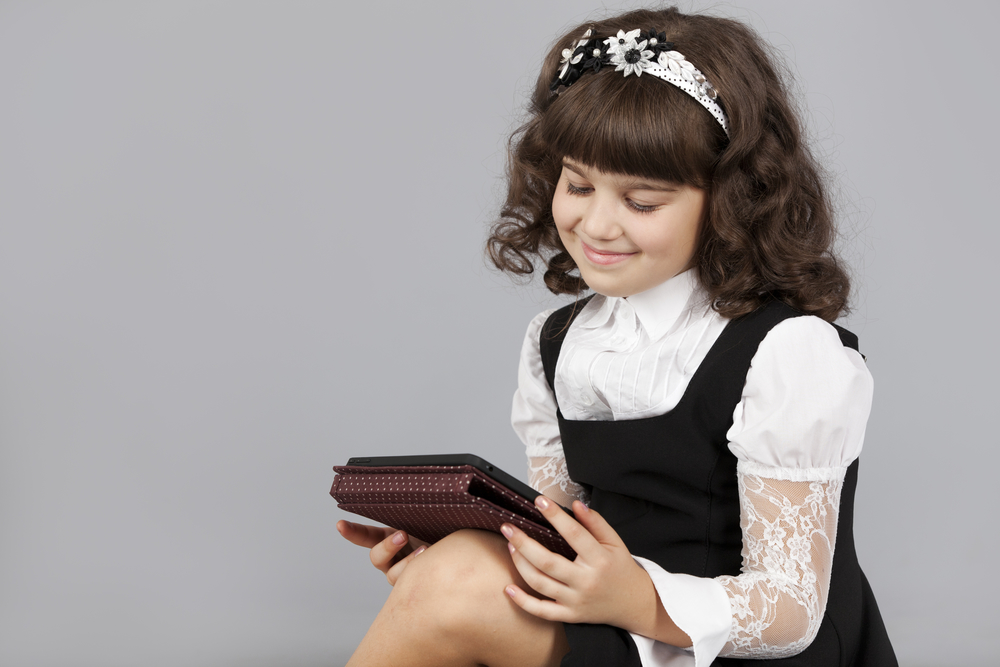By Gemma Brown
According to a survey conducted by YouGov and Scholastic, 75% of parents with kids aged 6-17 agreed with the statement: “I wish my child would do more things that did not involve screen time.” The report tells a story that shows the older a child becomes, the less time they spend ‘reading for fun’. Part of this comes from the introduction of prescribed texts in high school but the other issue is higher screen time where online games, YouTube, and social media become a larger part of their day.
It doesn’t have to be this way, however. While screen time in itself is not a bad thing, devices can be a distraction if children cannot manage their use. On the flipside, devices can be useful for online reading if they’ve developed positive self-regulatory strategies. The key is balance.
About four in five (78%) parents take an active role in monitoring what their child does online, according to ‘Parenting in the digital age’, a 2018 report by the Federal Government’s eSafety Research division. Fortunately, books don’t carry the same burden: either you’re reading together with your child and spending time together or, for older kids, reading is a great independent home learning task.
How does reading help? Reading increases vocabulary, fluency and creativity by modelling correct sentence structure, punctuation and grammar. This translates into an increase in students’ inferential comprehension, writing and reading confidence. The best part is that it can do so by stealth with books that children find fun to read. Nearly three-quarters of kids aged 6–17 (74%) responded to the Scholastic study that they would read more if they could find more books that they like.
Fun is beneficial
A study conducted in the UK for the Institute of Education by Dr Alice Sullivan and Matt Brown found that a child’s cognitive development between 10-16 years of age was positively influenced by reading for pleasure more so than their parents’ level of education. This was quantified as a 14.4% advantage in vocabulary, a 9.9% advantage in maths and an 8.6% advantage in spelling.
“It may seem surprising that reading for pleasure would help to improve children’s maths scores,” said Dr Sullivan in an interview with the BBC. “But it is likely that strong reading ability will enable children to absorb and understand new information and affect their attainment in all subjects.”
Pleasure reading is self-prescribed, so it is vital children are able to access books of interest to encourage consistent reading behaviour. Parents, teachers and librarians need to support students to assist them in finding styles which suit the individual child until they have developed the passion and self-motivation to read regularly.
How to read more
In addition to having an interesting book on hand, it’s important to make time for reading. The DEAR (Drop Everything and Read) time strategy is a solution parents and schools can adopt to help children take some time out of the chaotic technology-driven day to relax and read. In this period, kids can control the time and the text they are reading, which encourages them to develop a consistent reading habit.
At Waverley College, we have a wide range of activities that makes reading inclusive, from a Teacher Reading Aloud, where staff read to year groups to foster an interest in reading, to student selection where students interact with our mobile book shop to buy books they like for the library. We also host author talks and workshops and arrange excursions to the Sydney Writers’ Festival and the State Library of NSW to enhance coursework.
How effective are these programs? On 30th August, more than 300 of our students will complete the Premier’s Reading Challenge, where students have to read 20 books in six months. These books are self-selected and can be short stories to larger more complex texts. This enables young people to take control of what they are reading and also provides them with an incentive to read a wider variety of books. The uptake tells us we have helped make reading less of a ‘challenge’ and more fun. We hope you can do the same for the reader-to-be in your household.
Gemma Brown is the Literacy Coordinator at Waverley College. https://waverley.nsw.edu.au/
You may also like to read:









